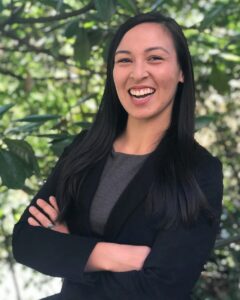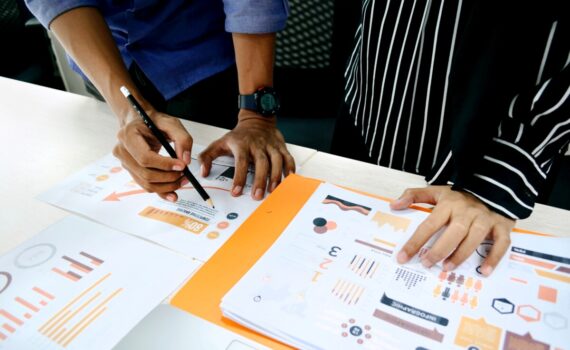Is Research Epidemiology For You?
Category : PROspective
By: Kristina Lai, MPH
One of the things I love most about my career as an epidemiologist is just how flexible my skills are thanks to the broad applications of my training. An area that is less well known is the role that epidemiologists play in clinical research and academic medicine. Research epidemiologists can work in nearly any medical specialty. They may work only with specific physician researchers or on collaborative studies within a larger clinical research team. This type of position is distinct from hospital epidemiologists involved in infection prevention and control.
I graduated from RSPH in 2016 with an MPH in Global Epidemiology. I initially worked in infectious disease surveillance and control at a local health department in Atlanta until I decided to pivot to a position that would allow me to use more of my data analysis skills. Thanks to my network and connections from my former ADAP, I found a dynamic role as a Research Epidemiologist with the Aflac Cancer and Blood Disorders Center at Children’s Healthcare of Atlanta. While I am no longer in this role, the research experience I gained was instrumental in preparing me for my current PhD program and my future career.
Epidemiologists in a clinical research and health services environment use many skills including study design, data analysis, data manipulation, and informatics. In my specific role, I led the collection and management of the largest longitudinal database of pediatric sickle cell patients in the country and served as the primary analyst and statistician for research studies related to sickle cell disease to better understand utilization, clinical outcomes, and health disparities among our pediatric patients. I also consulted on clinical study design and analysis plans, and managed data requests for clinical trials, grants, research studies, and quality improvement assessments. I also helped with the submission of IRB protocols, data use agreements, and other regulatory approvals.
Here are a few of the unique benefits of working as an epidemiologist in medical research:
- Because you work with physicians who may not have epidemiologic training, you are often the expert in study design and data analysis for your clinical team. For this reason, most epidemiologists will have at least a couple of years of work experience under their belts before taking on a role like this.
- You get to learn about all kinds of new research and hospital data management. I never thought I would know so much about blood disorders, but now I feel honored to have contributed to this important work. I also had the opportunity to work with specialists in informatics, outcomes research, and partners at universities and health agencies across the country.
- You get to work with primary data and electronic medical records. This may not seem like much of a benefit, but the amount of data available to us for retrospective studies can answer a wide range of research questions that are just not possible in most epidemiology roles. That means that your research can impact clinical operations and decision-making.
There are many ways to get involved in this type of work. The Emory Healthcare and Children’s Healthcare of Atlanta systems are great places to network and get research experience. You can start as a student through your practicum, REAL positions, or thesis by reaching out to faculty members or looking for posted positions. Many clinicians may have a research idea or even full datasets, but they often need help from someone with the bandwidth to analyze it. While all epidemiologists on my team had at least a couple of years of epidemiology experience, one great way to start is by working as a data manager or clinical research coordinator to familiarize yourself with the clinical research environment. So, if you’re naturally curious, interested in applying your epidemiology skills to a clinical environment, and looking to gain valuable research experience, a role as a research epidemiologist might be for you!
 Kristina Lai, MPH is a PhD student in Epidemiology at the University of California, Davis and a data manager with the California Department of Public Health. Kristina is also the co-founder of Allen & Lai Consulting LLC. She has broad experience with public health surveillance, clinical research, and international nonprofits. Kristina’s current interests lie at the intersection of health equity, infectious disease, and climate change.
Kristina Lai, MPH is a PhD student in Epidemiology at the University of California, Davis and a data manager with the California Department of Public Health. Kristina is also the co-founder of Allen & Lai Consulting LLC. She has broad experience with public health surveillance, clinical research, and international nonprofits. Kristina’s current interests lie at the intersection of health equity, infectious disease, and climate change.
Featured Image by UX Indonesia on Unsplash
